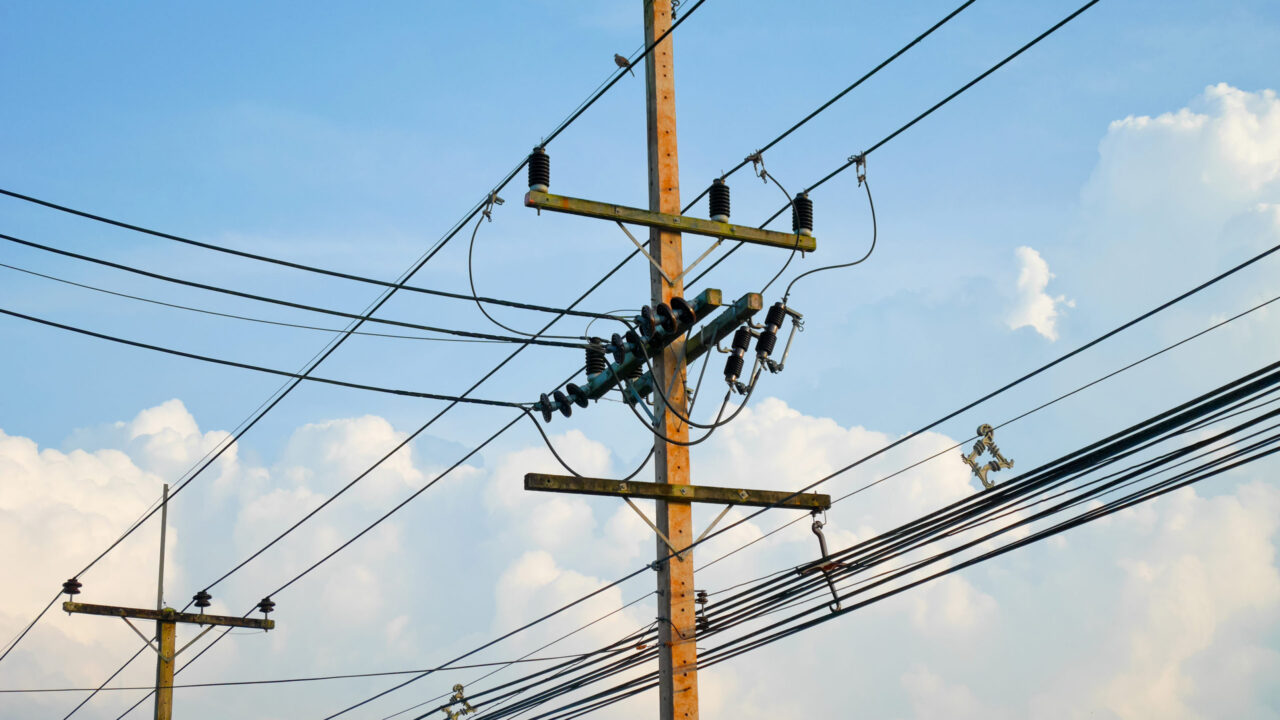 Electric Distribution Pole by American Electric Power, licensed https://www.customtruck.com/blog/electric-distribution-poles-what-do-they-do/
Electric Distribution Pole by American Electric Power, licensed https://www.customtruck.com/blog/electric-distribution-poles-what-do-they-do/
This November, Maine voters will decide on Question 3, a ballot initiative which would have the state take over all electric utility services, via a state-owned firm called the Pine Tree Power Company.
For reference, nearly 80% of Maine’s residents are serviced by the current major utility, Central Maine Power (CMP).
Proponents of the measure are ignoring these and other problems. Instead of admitting the Pine Tree scheme is a government takeover of the electric grid, the “Our Power” campaign pushing the question is claiming it would be a “consumer-owned” utility.
Lying to Mainers about what this ballot question would do right off the bat is not okay, but predictable given the record of failure of state-owned utility services. There are not truthful positives to highlight.
Claims about saving ratepayers money are dubious, as any temporary lower dollar figures on someone’s monthly electric bill are being made up by taxpayers who must foot the cost for inefficiencies and debt piled up by a government utility.
Even for a large utility, the separation between the private utility and government oversight creates accountability. The public utilities board, and consumers, provide oversight that prevents waste, and high prices. If the government owns and runs the utility, the oversight mechanism is broken. The government and the officials who pushed this plan would be policing themselves, with little incentive to be tough and protect Maine consumers.
This is not the first time such a proposal has gained traction in Maine. Legislation to create the Pine Tree Power Company was introduced in the Maine House of Representatives by State Rep. Seth Berry (D-55) in 2021. A version of the bill got to the desk of Gov. Janet Mills (D), who rightly vetoed the measure. Now, proponents are trying to hoodwink Maine voters into directly voting for the socialist plan.
This year, Gov. Mills is urging citizens to vote against Question 3, highlighting that this transition would cost the state more than $13.5 billion in borrowed money. This adds up to almost $4 billion more than the state’s biennial budget, which totals around $9.8 billion. She also warns that this initiative will enhance the presence of politics and partisanship in electricity delivery. This initiative establishes a structure of a governing board of elected individuals without proper credentials.
Additionally, most of the labor groups in Maine oppose this initiative because changing electric delivery to state-owned utility services would make employees public workers. Unlike private workers, public workers do not have the right to strike, which is a major point of concern for these groups.
These factors are big reasons why state-owned utility services have not only failed to lower prices but have increased them dramatically. For instance, the Los Angeles Department of Water and Power’s “electric costs exceed the average costs of each of three comparison panels – California Utilities, urban investor-owned utilities (IOUs), and publicly-owned utilities.”
If Question 3 passes, it would not take effect until January 1, 2025. However, the actual transition period to a state-owned utility could take anywhere between five to ten years, jeopardizing the quality and quantity of electric delivery in that timeframe. Furthermore, it is very likely that the sale price of this deal, whatever the cost, would go to court and take years to be settled. This would force Maine’s utilities into an uncertain state and threatens to hurt progress made in the industry.
Given these problems, the effort to establish a state-operated Pine Tree Power Company is a massive threat to Maine taxpayers heading to the polls this November.

